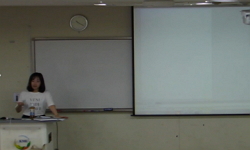(연구목적) 본 연구는 한국 이민정책을 문화다양성 정책 관점에서 평가하고, 정책의 주요 변화와 그 한계를 비판 적으로 고찰하는 것을 목적으로 한다. (연구방법) 본 연구는 문헌연구 방법...
http://chineseinput.net/에서 pinyin(병음)방식으로 중국어를 변환할 수 있습니다.
변환된 중국어를 복사하여 사용하시면 됩니다.
- 中文 을 입력하시려면 zhongwen을 입력하시고 space를누르시면됩니다.
- 北京 을 입력하시려면 beijing을 입력하시고 space를 누르시면 됩니다.
부가정보
국문 초록 (Abstract)
(연구목적) 본 연구는 한국 이민정책을 문화다양성 정책 관점에서 평가하고, 정책의 주요 변화와 그 한계를 비판 적으로 고찰하는 것을 목적으로 한다. (연구방법) 본 연구는 문헌연구 방법을 통해 한국 이민정책의 변화와 문화다양성 관련 정책을 비판적으로 분석하 였다. 주로 외국인정책 기본계획을 중심으로 정책 문서와 관련 선행연구를 분석하여, 문화다양성 개념의 정책적 접근을 평가하였다. (연구결과) 한국 이민정책은 경제적 필요와 인력(인구) 수급에 초점을 맞추는 경향이 강하며, 문화적 다양성을 수용하고 이를 사회통합에 활용하는 정책적 노력이 부족한 것으로 나타났다. 특히 이민자의 문화적 정체성과 다 양성을 보호하고 존중하는 정책은 수사적 수준에 머물고 있으며, 이주민에 대한 동화주의적 접근이 강하게 남아 있다. 이러한 점에서 한국 이민정책의 문화다양성 증진을 위한 체계적이고 적극적인 노력이 요구된다. (결론 및 제언) 향후 한국 이민정책은 문화다양성을 존중하고 포용하는 방향으로 발전해야 하며, 이를 위해 이민 정책의 포용성 강화, 사회통합의 지향 원리로서 상호문화주의 채택, 세대 및 계층 간 다문화 수용성 격차 해소 노 력을 제안한다.
다국어 초록 (Multilingual Abstract)
(Purpose) This study aims to evaluate South Korea’s immigration policy as a cultural diversity policy and critically examine its major changes and limitations. (Research methods) This research employs a literature review method to critically analyze...
(Purpose) This study aims to evaluate South Korea’s immigration policy as a cultural diversity policy and critically examine its major changes and limitations. (Research methods) This research employs a literature review method to critically analyze the changes in Korea’s immigration policy and its approach to cultural diversity. The analysis focuses on policy documents and previous studies, particularly those related to Basic Plans for Immigration Policy, to evaluate the evolution of the concept of cultural diversity and its policy implications. (Findings) The study reveals that Korea’s immigration policy remains largely focused on economic needs and labor supply. Efforts to embrace cultural diversity and utilize it for social integration are insufficient. Policies aimed at protecting and respecting immigrants’ cultural identities and diversity remain largely symbolic, with a strong tendency towards assimilationist approaches. Thus, the study highlights the need for systematic and proactive efforts to promote cultural diversity within the immigration policy framework. (Conclusion and recommendations) Korea’s future immigration policy should advance in a direction that respects and embraces cultural diversity. To achieve this, I propose enhancing the inclusiveness of immigration policies, adopting interculturalism as a guiding principle for social integration, and working to bridge the acceptance gap of multiculturalism across generations and social classes.
목차 (Table of Contents)
- 요약
- Ⅰ. 서론
- Ⅱ. 이론적 배경
- 1. 문화다양성
- 2. 국제이주와 문화다양성
- 요약
- Ⅰ. 서론
- Ⅱ. 이론적 배경
- 1. 문화다양성
- 2. 국제이주와 문화다양성
- 3. 문화다양성과 이민정책
- Ⅲ. 한국의 문화다양성 및 다문화수용성 실태
- 1. 한국의 문화다양성 현황: 인구학적 다양성 측면에서
- 2. 한국의 다문화수용성 수준
- Ⅳ. 문화다양성 관점에서 본 한국 이민정책
- 1. 이민정책의 변화와 문화다양성의 포섭 노력
- 2. 다문화주의적 이상과 선별적 사회통합 정책 간의 괴리
- Ⅴ. 결론
- 참고문헌
- ABSTRACT
동일학술지(권/호) 다른 논문
-
- 한국이민정책학회
- 한국이민정책학회
- 2024
- KCI등재
-
- 한국이민정책학회
- 한국이민정책학회
- 2024
- KCI등재
-
공동체 정신의 본질과 확산에 관한 연구 : 상호문화주의 이민자 사회통합정책을 중심으로
- 한국이민정책학회
- 문병기
- 2024
- KCI등재
-
호주의 이주배경청소년에 대한 지원・체류정책 및 한국에의 시사점
- 한국이민정책학회
- 임동진
- 2024
- KCI등재





 KCI
KCI eArticle
eArticle






